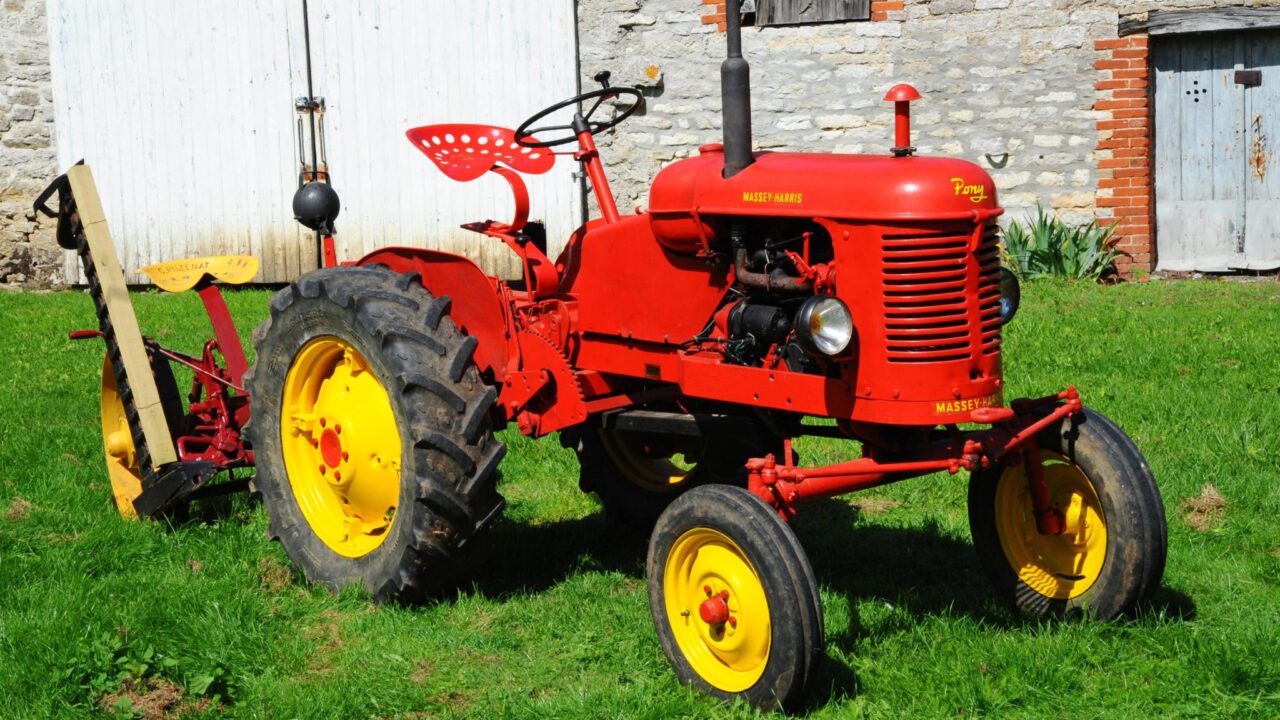In the recent review of the Colm Clifford’s vintage tractor auction in Co. Kerry, there appeared a Massey Ferguson 821 tractor powered by a Hanomag two cylinder diesel.
This is an uncommon tractor here in Ireland, with no clear recollection of them being imported in any great numbers if they were imported officially at all.
Yet there was another French-built tractor, the MF 25, which was sent to Ireland by the company.

This was the tractor for which the factory at Beauvais had been built to manufacture, but there were at the time three further factories in Europe, if Scotland is included, producing Massey Ferguson machinery.
One was at Eschwege in Germany, another at Kilmarnock in Scotland while the third was at Marquette-lez-Lille in northern France.
Numbering system
The production site of each model was denoted by the first figure in the model number. Tractors or combines built in Germany had the number six as a prefix, those produced at Kilmarnock number seven, while the factory at Marquette used eight as the first numeral.

Thus it was that the MF 21 was known as the MF 821 if built at Marquette, although it appears that tractors made in Beauvais had no such prefix.
The Marquette factory had been opened in 1926 by Massey Harris as a French subsidiary to the Canadian company, branding the machines as Massey Ferguson from the mid-1950s onwards.

It was primarily orientated towards combine production, but also became synonymous with the Massey Harris Pony, of which it built 92,000 units.
At its heyday in the mid-1950s, the Marquette factory is said to have employed over 3,000 people, with a foundry and assembly lines producing not just complete machines but also cabs and parts for other factories.
Industrial action
It was a thriving factory which would have been a major employer in the area. However, by certain accounts, it was far from a happy ship.
The factory paid by piece work and, for a period, would only pay for a day’s work if a certain amount of items had been completed.
Working conditions were also said to be poor and, with this sort of management regime in place, the unions grew in size and strength, occupying the factory for several weeks during the French general strike of 1968.

Another problem that beset the factory – and all other tractor factories of the time – was over-capacity as the great rush to replace the horse drew to a close and it became a matter of fleet renewal rather than direct replacement.
This inevitably led to a reduction of the work force as, bit by bit, Massey Ferguson scaled down its production throughout the 1970s and 1980s.
Massey Ferguson contracts
Eschwege in Germany was the first to close in 1971, followed by Kilmarnock in 1980, and Marquette finally succumbed in 1984, but not after a protracted battle by the unions to keep it open.
One tactic favoured by the French unions was ‘sequestration’ of the factory management, locking them into the offices for days at a time.

Whether this played on the minds of the Massey Ferguson board when it later came to deciding between Beauvais or Banner Lane depends on which account one chooses to believe, but it was the Coventry plant that closed in 2002.

